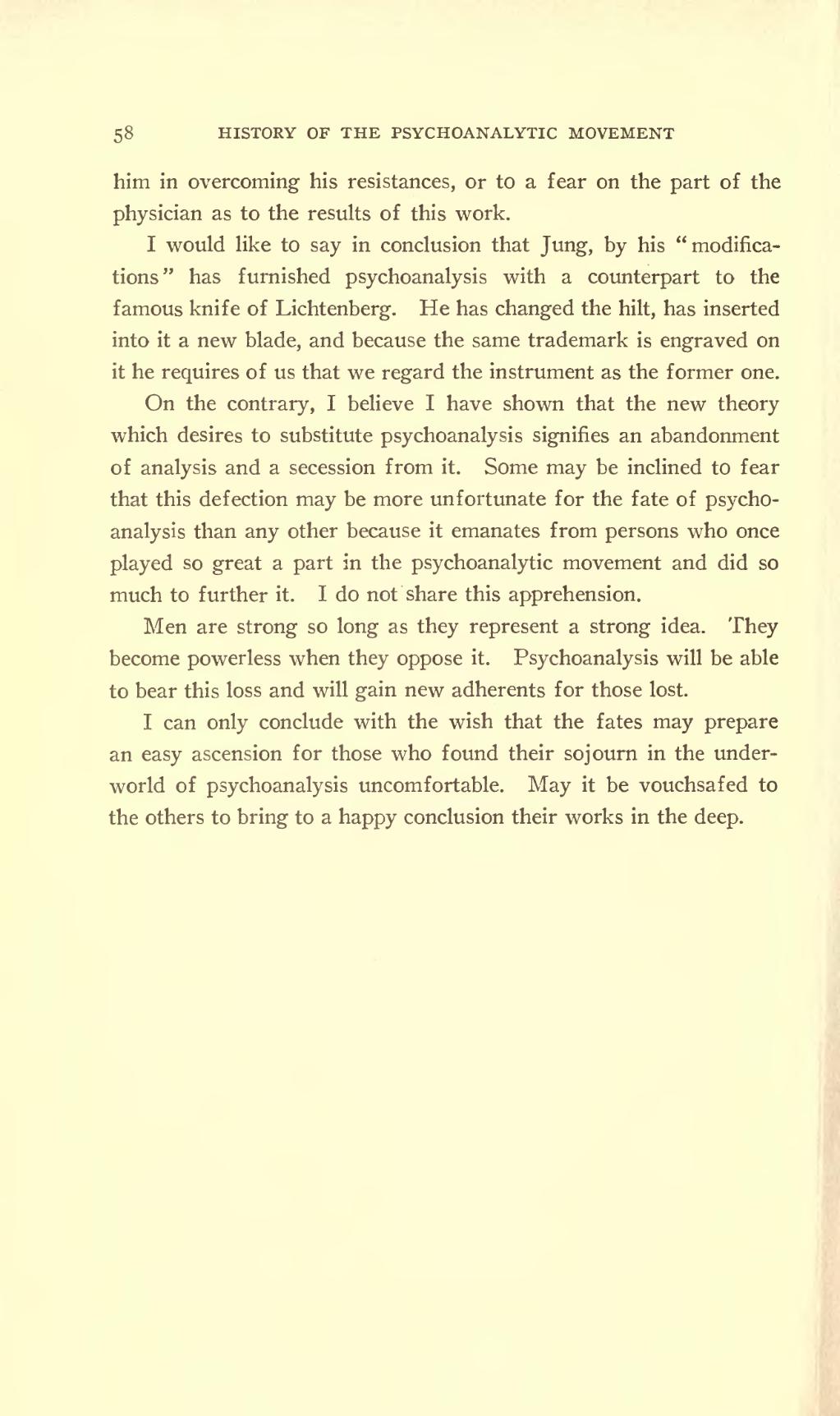him in overcoming his resistances, or to a fear on the part of the physician as to the results of this work.
I would like to say in conclusion that Jung, by his "modifications" has furnished psychoanalysis with a counterpart to the famous knife of Lichtenberg. He has changed the hilt, has inserted into it a new blade, and because the same trademark is engraved on it he requires of us that we regard the instrument as the former one.
On the contrary, I believe I have shown that the new theory which desires to substitute psychoanalysis signifies an abandonment of analysis and a secession from it. Some may be inclined to fear that this defection may be more unfortunate for the fate of psychoanalysis than any other because it emanates from persons who once played so great a part in the psychoanalytic movement and did so much to further it. I do not share this apprehension.
Men are strong so long as they represent a strong idea. They become powerless when they oppose it. Psychoanalysis will be able to bear this loss and will gain new adherents for those lost.
I can only conclude with the wish that the fates may prepare an easy ascension for those who found their sojourn in the underworld of psychoanalysis uncomfortable. May it be vouchsafed to the others to bring to a happy conclusion their works in the deep.
